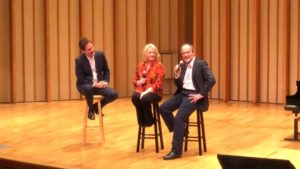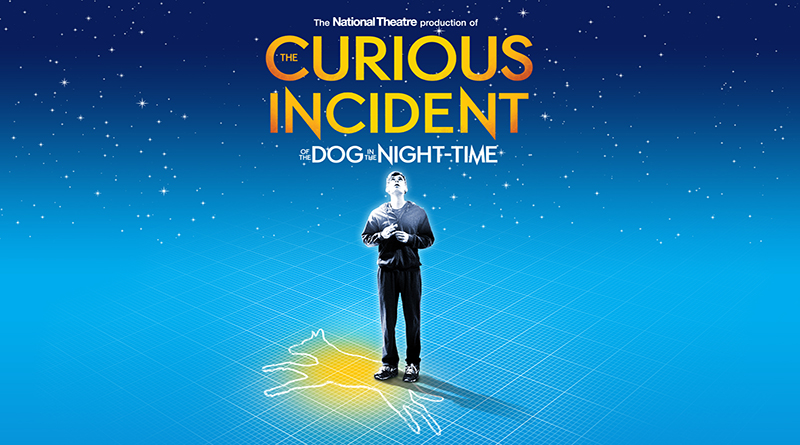
My Spouse Is On The Spectrum: Autism & Relationships
By Tim Goldstein
Being In A Relationship With Someone On The Autism Spectrum
Karen, my wife, and I had the opportunity to join Roger Love on stage at his Voice of Success Event event. We primarily spoke about how Roger’s training has helped us, particularly in our relationship. With me having Asperger’s and Karen being a neurotypical, autistic traits were a major focus as they amplify all the common relationship problems and add many additional challenges.
While I focus on Autism at Work and bridging the tech/business communication gap, as a Neurodiverse Communication Specialist and with the experience of our 3+ decade marriage, relationship questions frequently come up. The most frequent question is “I think my spouse has ASD/Autism/Asperger’s and I don’t know what to do.” Funny thing is the person asking assumes this is an unusual question. I can assure you, it is a very common question so don’t think you are facing a unique situation.
At this event I was again asked this questions. I figured it was about time I put together a post explaining a little of how to handle being in a relationship with someone who either is on the autistic spectrum or may be an “A”SD Lister. An “A”SD Lister is someone who may not be clinically diagnosable, but has many of the traits and all the thought pattern as if they were on the autism spectrum. Hate to be the bearer of bad news, but mixed neurotypical/neurodiverse marriages face far greater challenges to lasting than “normal” couples.
Autism & Relationships: Common Challenges
Here’s some of my thoughts to help you understand a few of the major issues from the perspective I see them. I can assure you, this is not how Karen sees it or for that matter, how most would see it. Some of the biggies are: communication, display and response to love and emotions, and fixed rigid views. I am using 2 abbreviations which come from the concept of neurodiversity. They are NT for NueroTypical or ND for NeuroDiverse. NT being “normal” people and ND being the “A”SD Listers.
Communication: just like most relationships this is a frequent cause of most issues. The differences in a NT/ND marriage are not the “Men are from Mars, Women are from Venus” sized challenge, but instead closer to ND’s are from an alternate universe. There are many land mines in this topic. The most critical is the hardest to wrap your head around and the most important to understand. You have to understand our being, experience of the world, and mental model of that world is truly alien. More insidious is both universes use the same words, but the meanings are different and neither of you know this.
Love and Emotion: if you are a feeler this one is going to make you seriously believe the ND has no feelings for you. If you interpret love as emotional response, than you will find yourself in a desert where love is hidden and in code. Regarding having feeling, the answer for many ND’s is, we have sensations in our body, but that has nothing to do with anything. Love is a mental concept for me and is just as valued and important to me as your version is to you.
Rigid Views: no us ND’s don’t think everything you say or believe is wrong. The foundation for this challenge is really black and white thinking. We frequently tend to view things as if everything in the world is binary. It’s right or it’s wrong. There is no maybe between the two. Frequently we have technical or very logical linear thinking careers at which we often excel and our B&W universe is an asset. But when it comes to relationships it is a coiled rattlesnake just waiting to strike.
Resources For Relationships On The Spectrum
I want to give you some resources I have found to be very helpful in understanding your “A”SD Lister. I am not going to do reviews per say, instead it will just be little summaries of how I found the book to be most useful.
The Rosie Project – This book is a fiction novel. It is a NT/ND love story. The character with Asperger’s has his traits over accentuated. Not that there aren’t “A”SD Listers with the trait that extreme, but more in the number of traits he has at that extreme a level. But through this magnification the different brain operating system is made obvious. If you want to get a vision into the extreme difference in the world me and my tribe live in, this is a great book to start with.
22 Things a Woman Must Know If She Loves a Man with Asperger’s Syndrome – 100 pages of super fast reading. This book hits on many frequent NT/ND relationship issues. It is clear and to the point. It does a good job of respecting and presenting both sides of the equation. A good place to start if you are just beginning on the journey of figuring out if some version of autism is at the core of your relationship challenge. The author explains an interesting issue which is frequent in these relationships. There is a disorder called CAD which stands for Cassandra Affective Disorder. This is given to the NT in the relationship by the ND. If your relationship has gotten to the point where you have signs of CAD, you will need to move beyond it if you hope to make the relationship healthy
Life With a Partner or Spouse With Asperger Syndrome: Going over the Edge? – Lots of good information presented in an interesting way. The book follows a woman through a series of vignettes of relationship interactions with her ND husband. She is at her therapist and their conversation wraps around the stories of home life.
Loving Someone with Asperger’s Syndrome: Understanding and Connecting with your Partner – Information packed. This book is a more academic format and presentation. If you are serious to learn this is a great choice. The reading is a little more challenging, similar to a college 101 level. The effort is worth it.
Neurotribes: The Legacy of Autism and the Future of Neurodiversity – This book is not relationship oriented. It is the modern bible on autism, Asperger’s, ASD. You learn how professional rivalry, xenophobia, narrow definitions, and more affected our understanding and inhibited progress. If you are an “A”SD Lister this is the “give me every detail” manual you need.
Jennifer M. from publichealthlibrary.org reached out to me and provided some interesting links. While many of the articles were written with autisitc children in mind, there is a large amount of content that applies regardless of the autistic person’s age or relationship to you.
Making your home autism friendly – A huge amount of advice to help you understand the things that make a home comfortable and engaging for an autistic person of any age. While written with children in mind many (most) of the tips apply to me or other autistic adults I know. Improve your relationship by making your autistic loved one comfortable and relaxed at home.
This article was originally published on Tim’s website, and is republished with his kind permission.
Diagnosed with Asperger’s at 54, Denver-based consultant Tim Goldstein is a Neurodiverse Communications Specialist –the only one doing what he does. He trains all types of employees including those who are neurodiverse and maybe autism how each other functions.
With deep experience in business and consulting, Tim, helps companies recognize and overcome the challenges integrating the neurodiverse. Using his Neuro Cloud™ concept, he explains the Spock-like logical approach common among the neurodiverse. Tim has lectured on his concepts at Cornell and presented them at Vanderbilt. His book, Geeks Guide to Interviews: 15 Critical Items for the Technical Type, is available to help people better understand challenges to the autistic in the workforce.





